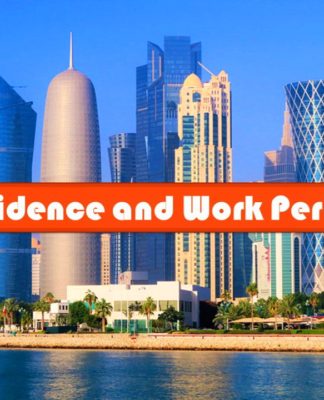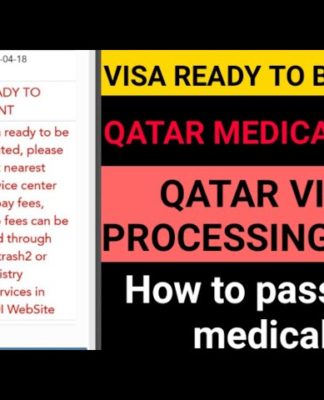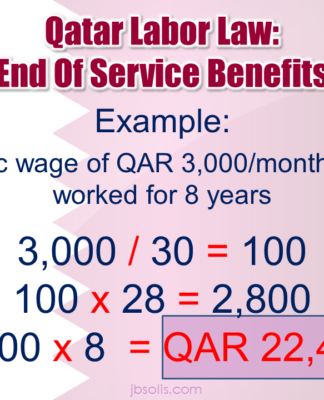Towering skyscrapers and beautiful shopping malls give the visitor to Qatar the impression of a glamorous and wealthy city.
Doha is a beautiful modern metropolis, and Qataris take pride in architectural design. Their standard of living is high and most people report feeling safe and generally satisfied with education, health care, environment, and employment provisions. Qatar has retained its top position among Arab countries in the latest edition of the United Nations’ Human Development Report, a distinction it has held since 2013.
Historically, Qatar has long been ruled by the Al Thani family. The current Emir (monarch) and Head of State are His Highness Sheikh Tamim bin Hamad Al Thani. HH Sheikh Tamim is the previous Emir’s fourth son and was announced the heir apparent in 2003. He peacefully succeeded his father who abdicated in June 2013. Qataris will expect you to recognise the family name and the ruler’s name, and it is only polite that you do so.
Working permit
It is not possible to enter the country to work unless you have already secured a job, so your company, which is also your sponsor, should handle the paperwork for you, including your initial visa. As soon as you have arrived, your company will start the ball rolling with your work residence permit. For this, you’ll need essential documentation such as your passport and qualification certificates but your company will advise you. There are a number of tests and checks you will need to undergo — including a blood test for HIV and TB along with a chest x-ray. You’ll also have your fingerprints taken.
The process can take up to six weeks and during this time you are not permitted to leave the country. It’s also worth bearing in mind that the process can take longer during Ramadan.
There are a number of controls on your work permit. It is attached to your employer, so you can only work for them during your time in Qatar. It is possible to change jobs after a period of time but by law, they must give you a no-objection certificate.
You are also permitted to sponsor your immediate family into the country to live with you. This includes your spouse and your children (stepchildren are also allowed but there will be extra paperwork to process) and dependent parents. Take note that under the country’s strict Islamic law, unmarried couples are not allowed to cohabit and same-sex couples are not recognised, even if they are married in their home country (and homosexual behaviour is severely punished).
It is also worth noting that as the main residence permit holder, there are exit restrictions you must adhere to and you’ll need a no-objection certificate in order to leave the country. Any family you’ve sponsored into the country, however, will not be subject to the same controls.
Find out more about the system and how it works on Hukoomi, the Qatari government’s website.
Workplace environment
Your working week is likely to be Sunday to Thursday. Most, if not all offices in the Middle East have separate prayer rooms for men and women, and your colleagues will disappear several times a day to pray. The holy day in Islam is Friday, so that is the biggest day for mosque attendance, even among those who would normally pray at home or in the office. Parking can be an issue on Fridays but new residents soon get used to this.
Women have a strong presence in the workplace in Qatar, employed in many roles in commerce and government organisations. See our section on business etiquette for what to expect when working with Qatari nationals.
Teaching, medical, and professional services are examples of sectors commonly employing women from abroad.
See our Culture and Customs section for more guidance on dressing for different situations.
Ramadan
Your working hours in a government position will be shortened during Ramadan. Ramadan is the month of fasting, a Muslim observance in which food and drink are not consumed during daylight hours — and this extends to chewing gum and smoking. The commencement date of Ramadan moves yearly. Restaurants all over the country are closed during the day, except those inside international hotels where visitors are permitted to eat. You may also eat at home where you can guarantee privacy, but when at work it is respectful to do as your colleagues do. Breaking these observances is a criminal offence and the law applies to Muslims and non-Muslims alike.
Electronic cigarettes
It may surprise visitors to know that electronic cigarettes are illegal in Qatar and will be confiscated. If this is your weapon against a full-blown smoking habit you will need to seek alternatives. Many Arabs smoke, although there is no smoking inside government offices. As a result, you’ll see people taking their smoking breaks outside, even when fresh air is hitting 45 degrees and 99% humidity.
Take the opportunity to discuss a general health and well-being check with our advisers. Making small changes like working out, swimming, eating lightly in the heat, and having less alcohol generally, may mean you find your health improves during your time as an expat. Talk to one of our experts who can discuss your current health care needs, and help you consider how your future needs might change.
Additional sources
- www.dohanews.co/un-ranks-qatar-highest-among-arab-states-human-development
- http://www.lifeinqatar.com/Pages/en/article/living/getting-setup-in-qatar-as-an-expat.html
- www.thenational.ae
- www.gulf-times.com/story/481219
- https://www.gov.uk/foreign-travel-advice/qatar/entry-requirements
- http://www.expatarrivals.com/qatar/doing-business-in-qatar
- http://www.expatarrivals.com/qatar/work-permits-for-qatar
- https://travel.state.gov/content/passports/en/country/qatar.html
- http://portal.www.gov.qa/wps/portal/topics/Visas+and+Official+Documents


























